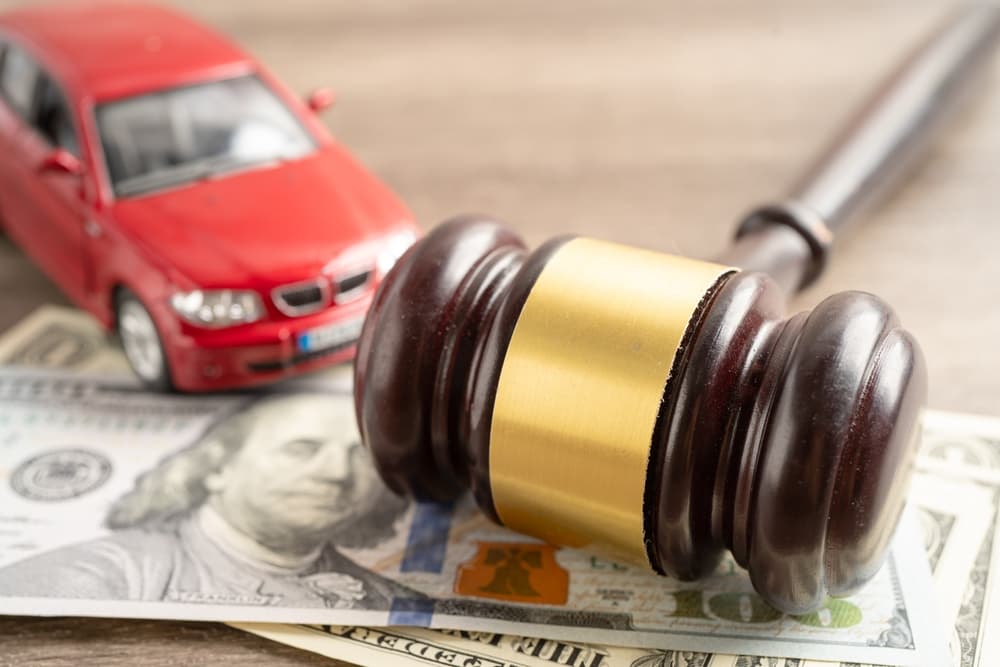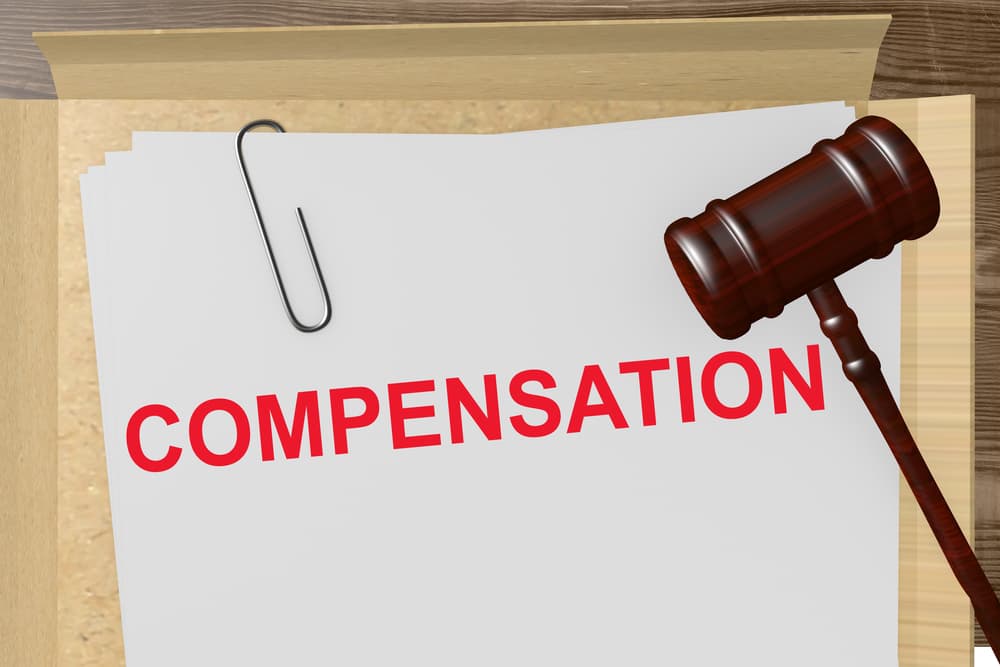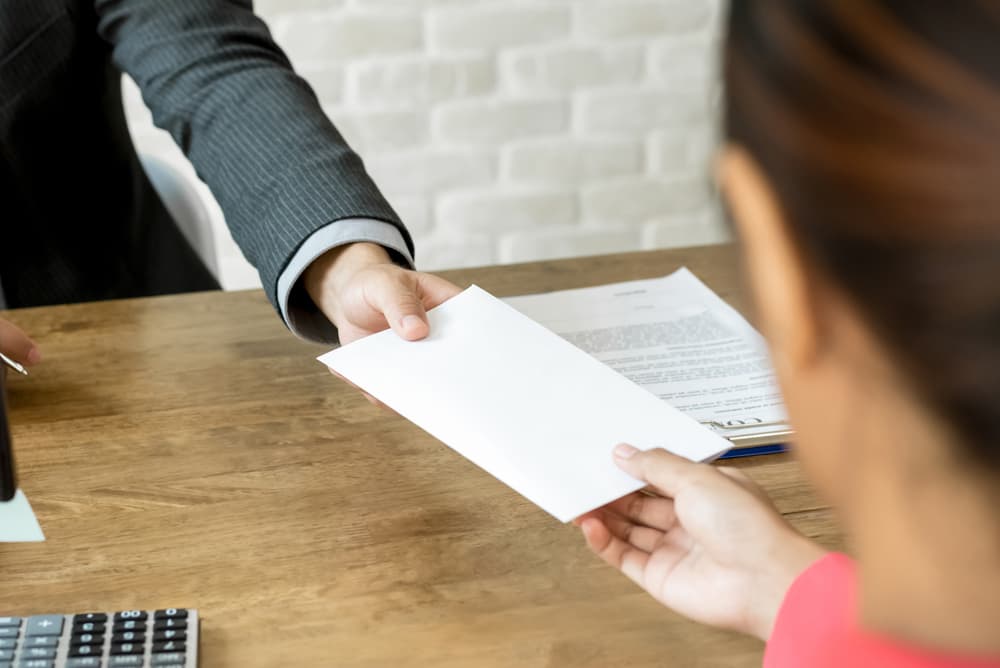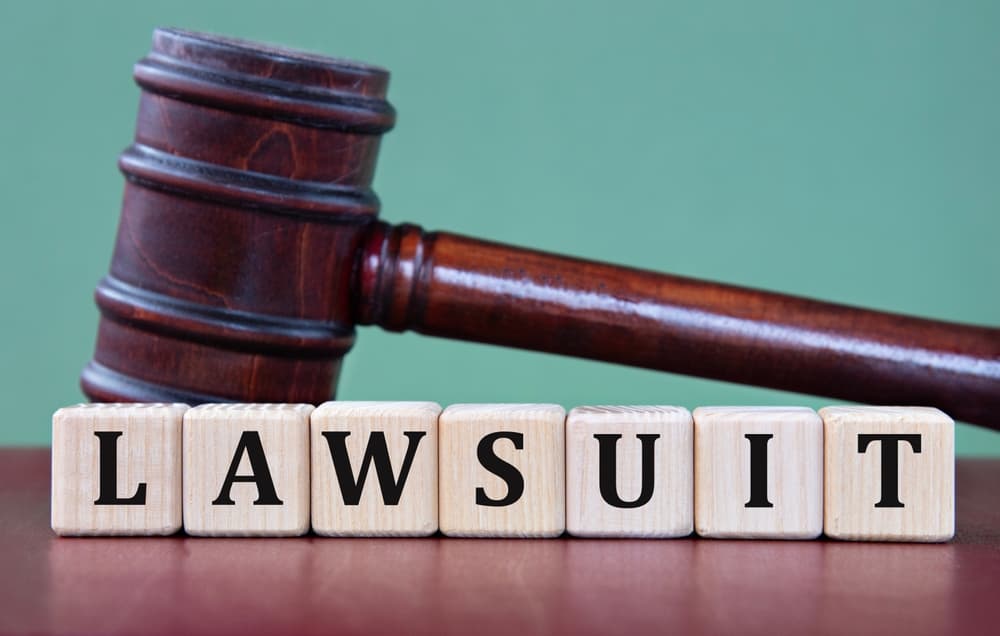You should never take the first offer from a car accident settlement until a lawyer has carefully reviewed the terms of the agreement. Without their help, you may be left with a much lower settlement than you deserve.
At O'Connor, Acciani & Levy, our car accident lawyers want to help you recover maximum compensation for injuries caused by an auto collision. We've designed this learning resource to help you understand when you should take the first offer from a car accident settlement.
Schedule Your Free Consultation
What Is Included In an Initial Car Accident Settlement Offer?

The initial offer from an insurance company typically includes monetary compensation for medical bills, lost wages, and property damage. It may also include an amount for pain and suffering if the policy you file against qualifies for that type of damage.
While it may seem like a fair amount at first glance, the truth is that insurance companies are notorious for offering low settlement amounts to save themselves money.
As such, your first offer may not take into account the full extent of your injuries or other long-term effects from the accident, which can include:
- Future medical expenses
- Lost earning capacity due to permanent injuries or disabilities
- Emotional trauma and mental health treatment
- Physical therapy or ongoing rehabilitation
By accepting the first offer without learning about your options, you may be signing away your right to seek further compensation for these damages.
How Can A Lawyer Help?
The burden of a car accident on injured parties can leave them feeling anxious to accept any offer that comes their way, regardless of its fairness.
But before you decide that the first offer is your best option, take a look at how a lawyer may be able to help you maximize compensation:
- Detailed investigation: Legal professionals know how to gather and analyze evidence to assess the full extent of your damages. This includes reviewing medical records, consulting with experts, and interviewing witnesses.
- Aggressive negotiation: Accident injuries can leave injured parties without the will to fight for fair compensation. Fortunately, a lawyer is ready to aggressively pursue compensation for your injuries using negotiation tactics that combat false claims and lowball offers.
- Trial experience: When the other parties are unwilling to provide a fair settlement, a lawyer will be your staunchest ally in court. With their help, you can present your case to a judge or jury using strong evidence to support your claim for full and fair compensation.
Those who choose not to hire a lawyer may run into difficult-to-overcome obstacles, such as:
- More significant financial burden, including out-of-pocket expenses for medical bills and lost wages
- Difficulty obtaining necessary medical treatment or rehabilitation due to lack of funds
- Increased stress and frustration in dealing with the insurance company's tactics
- Diminished compensation due to a lack of legal knowledge about all potential avenues of compensation
You can mitigate the adverse effects of these issues by enlisting the help of a lawyer. They can provide you with guidance and support throughout the settlement process, ensuring that you receive maximum compensation for your damages and losses.
What Is Fair Compensation After A Car Accident?

Every case is unique, and the amount of compensation available may vary depending on:
- The severity of your injuries
- The effects on your quality of life and relationships
- The strength of evidence supporting your personal injury claim or lawsuit
- The level of negligence shown by the party or parties responsible for your injuries
- The amount of available insurance coverage
Based on these considerations, you could receive economic and non-economic compensation that covers:
- Current and future medical needs: A fair car accident settlement should include compensation for medical expenses related to the accident, including ongoing treatment and potential future medical costs.
- Lost wages: If your injuries have prevented you from working, a settlement should include compensation for lost wages. This can also extend to future earning capacity if your injuries have resulted in long-term or permanent disabilities that keep you from returning to work.
- Pain and suffering: This non-economic damage accounts for physical pain, emotional distress, and mental anguish caused by the accident. The monetary value of non-economic damages are determined by the severity of your injuries and how they have affected your daily life.
- Property damage: If your vehicle or personal property was damaged in the accident, a settlement should include compensation for repairs or replacement costs.
- Medical devices and home modifications: If your injuries require medical equipment or alterations to your home, these costs should also be included in a fair offer.
Any settlement that doesn't account for these factors or does not consider your unique circumstances may be inadequate. Trust a lawyer to review the settlement letter and help you determine if it is appropriate or if further negotiations are needed.
What Can I Do If the Initial Settlement Offer Doesn’t Cover My Accident Expenses?
Personal injury claims allow those harmed in a car collision to pursue compensation through their own and the other driver's insurance policies. However, these policies often fail to meet the full extent of accident-related expenses.
When the insurance policy isn't enough to cover all of your expenses, you have a few options for seeking additional compensation:
- File a lawsuit: With the help of a lawyer, you can file a personal injury lawsuit against the at-fault driver. This allows you to pursue full and fair compensation through the court system.
- Negotiate with other liable parties: Sometimes, more than one party may be responsible for your injuries. Your lawyer can negotiate with these parties' insurance companies to secure additional compensation.
By exploring these options with the help of a lawyer, you can hold the at-fault parties accountable and receive the fair compensation you deserve for your injuries.
What Do I Do After Receiving an Initial Settlement Letter For a Car Accident?

Once you have the first settlement offer, the first step is to speak with a car accident attorney. Other critical actions to consider include:
- Understand the implications of signing: By signing the initial settlement letter, you may waive your right to pursue further compensation in court. A lawyer can review the offer and advise you on your rights if you agree to the settlement.
- Gather additional supporting evidence: Depending on the basis of the offer, your lawyer may advise you to gather more information or evidence to support your claim for higher compensation.
- Consider a counteroffer: A lawyer can help you draft and submit a counteroffer to the insurance company. This can open up negotiations and potentially lead to a fairer settlement offer.
- Don't rush into a settlement: Understandably, you may want to settle as quickly as possible after suffering catastrophic accident injuries. However, you must carefully consider all aspects of the offer before accepting it.
These considerations protect you from receiving an unfairly low settlement offer that will not cover the full extent of your damages. With the help of a lawyer, you can navigate the complex process of obtaining fair compensation after a car accident.
What Insurance Coverage Can Compensate Me After a Car Accident?
Multiple insurance policies in Ohio and Kentucky can provide compensation for injuries suffered in a car accident:
- Personal injury protection (PIP): This coverage can provide compensation for medical expenses, lost wages, and other damages up to the policy limit. This coverage often falls short of fully compensating for all damages, making it necessary to pursue compensation from other sources.
- Uninsured/underinsured motorist (UM/UIM) coverage: This type of coverage can provide compensation if the at-fault driver lacks insurance or has insufficient coverage. Like PIP, this coverage may not be enough to cover all expenses.
- Bodily injury liability (BIL) coverage: This insurance covers damages to other parties when the at-fault driver causes the accident. However, the amount of coverage may not be enough to fully compensate for all damages.
- Medical payments (MedPay) coverage: This optional coverage helps pay for medical expenses related to a car accident regardless of who is at fault. It can provide additional compensation for medical expenses not covered by PIP or other insurance policies.
These insurance policies vary on the type of damages they cover and the potential amounts provided. This highlights the importance of seeking reputable legal help from a car accident lawyer who can help you navigate the complexities of insurance coverage and ensure that you receive fair compensation for your injuries.
How Do I File a Personal Injury Claim or Lawsuit?

There are many steps to filing a personal injury claim or lawsuit after a car accident. A lawyer can help you accomplish all of these steps while you focus on recovery. While the specific process may vary depending on the insurer or court system, the general steps include:
- Gathering evidence: This includes obtaining a copy of the police report, medical records, photos from the accident scene, witness statements, and any other relevant documents.
- Contact your insurance company: You must notify your insurance company of the accident and submit a claim. They may also request a statement from you regarding the accident.
- Forward communications to your lawyer: Your lawyer will handle all communication with the insurance companies and other parties involved in the accident. Anytime you receive a document or a request for a statement, you should forward it to your lawyer for review and guidance.
- Negotiate with the insurance company: Your lawyer will work on securing a fair settlement offer from the insurance company. This may involve submitting evidence, countering offers, and advocating for your rights as a victim.
- Wait for an offer: Insurance companies can take several weeks to investigate and review your claim. During this time, your lawyer will keep you updated on any developments.
- Analyze the initial settlement letter: If you receive an initial settlement offer, your lawyer will review it and advise you on whether to accept or reject the offer. They may also provide a counteroffer if necessary.
- Consider filing a lawsuit: If negotiations with the insurance company are unsuccessful, your lawyer may recommend filing a lawsuit to pursue further compensation in court.
This process has critical filing deadlines. Failure to meet them may cause you to lose out on adequate compensation. Make sure the process goes as smoothly as possible by partnering with experienced car accident lawyers who can help you navigate the complexities of filing a personal injury claim or lawsuit.
Analyze Your Initial Settlement Offer From A Car Accident With the Help Of O'Connor, Acciani & Levy
Knowing whether or not to accept an initial settlement offer for a car accident is challenging. Unfortunately, rushing the decision and accepting an inadequate offer can have long-term consequences on your financial and physical well-being.
Confidently analyze your settlement offer with the help of car accident lawyers from O'Connor, Acciani & Levy. Our personal injury law firm understands the complexities of car accident cases and will work tirelessly to ensure you receive fair compensation for your damages. Never take a first offer without fully understanding your rights.
Schedule a free case evaluation online or at (513) 224-5461 to learn how we can help you recover the full and fair compensation you deserve for the harm a car crash has caused you. O’Connor, Acciani & Levy, attorneys you know, attorneys you trust.